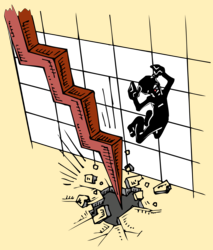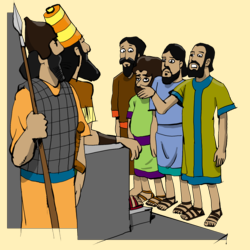 In last week’s post, I said that true faith isn’t about blind belief contrary to all the evidence. It’s about what you believe based on the evidence. However, there’s more to faith than that. Faith is about deciding what is true when you have time to consider all the relevant facts objectively, and then sticking with that truth during the tough times when the busy-ness of life and voices of the crowd and the heat of the moment urge you to abandon that truth.
In last week’s post, I said that true faith isn’t about blind belief contrary to all the evidence. It’s about what you believe based on the evidence. However, there’s more to faith than that. Faith is about deciding what is true when you have time to consider all the relevant facts objectively, and then sticking with that truth during the tough times when the busy-ness of life and voices of the crowd and the heat of the moment urge you to abandon that truth.
Faith is something exercised by scientists when the rest of the world is telling them that their theories are wrong. Faith is something exercised by a child in a schoolground who stands up for what is right when all the other children want to do what is wrong. And faith is something exercised by a follower of Jesus when all around are saying that there is no God, and that only weak-minded people need the crutch of religion.
The Bible is a collection of accounts of the faith exercised by God’s servants, from Abraham through to the early New Testament believers. Many of these faith stories are summarised in Hebrews 11. In each case, the person of faith made a conscious rational decision to trust God, and then stuck with that decision when the going got tough and the immediate circumstances tempted them to abandon their trust.








